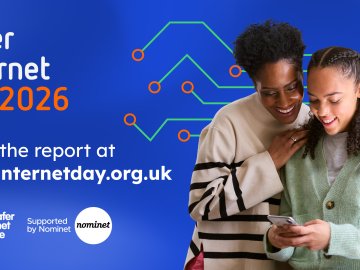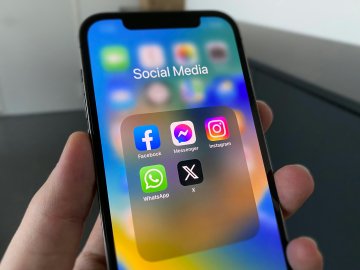Pete Etchells, Professor of Psychology and Science Communication at Bath Spa University, joined the podcast Interface to discuss his work Unlocked: The Real Science of Screen Time. The conversation, hosted by Jess McBeath (online safety consultant at SWGfL), delved into the complexities of screen time, challenging the common narrative that all screen time is inherently harmful.
The Current Narrative Around Screen Time
Jess opened the discussion by voicing a common concern: “Screen time is bad, right? We have a terrible time online.” Pete acknowledged the widespread belief that screens and digital technology are predominantly negative. However, he stressed that this perspective oversimplifies the issue. While there are genuine concerns associated with screen use, such as cyberbullying and addiction, there are also significant benefits that often get overlooked.
Pete pointed out that focusing solely on the negative aspects of screen time leaves people feeling disempowered. It suggests that screens are a problem inflicted upon us, ignoring the positive experiences and opportunities they provide. “Our online lives aren’t going away anytime soon,” Pete noted, emphasising the need for a more balanced narrative that recognises both the good and bad aspects of digital technology.
The Science of Screen Time
Jess highlighted the prevailing perception that scientific research overwhelmingly shows that screen time is detrimental, particularly for young people. Pete countered this by explaining that the science is far from conclusive and often depends on how screen time and its impacts are defined and measured. He noted that the focus has shifted from general screen time to more specific concerns about social media and smartphones. However, these terms encompass a wide range of activities, making it difficult to draw broad conclusions.
Pete illustrated the complexity by describing his own multitasking habits while writing his book. His screen time included productive work, social media interactions, and entertainment. The impact of these activities on wellbeing can vary significantly. For example, mindlessly scrolling through social media might be less beneficial than engaging in meaningful conversations with colleagues.
Objective Measures and Theoretical Frameworks
Jess inquired about what objective measures of screen time tell us. Pete admitted that even these measures are imperfect. He cited an example from a study involving running apps, where the screen time recorded did not accurately reflect active engagement with the app. This discrepancy highlights the need for better theoretical frameworks to understand the nuanced impacts of different types of screen use on wellbeing.
Pete emphasised the importance of considering why and how people use technology. He argued that simplistic measures of screen time fail to capture the complexity of digital interactions and their diverse effects on mental health.
The Role of the Media and Societal Expectations
Jess and Pete discussed how media coverage often amplifies research findings that suggest negative impacts of screen time, catering to parents’ desire for clear, actionable advice. However, this can oversimplify the issue and lead to unrealistic expectations. Jess recalled the 2018 guidelines from the Royal College of Pediatrics, which advised a balanced lifestyle rather than strict screen time limits. Despite their sensible approach, these guidelines faced backlash from parents seeking more definitive answers.
Pete acknowledged the challenges parents face in managing their children’s screen time. He emphasized the importance of having open conversations and setting expectations that work for individual families. This approach respects family values and the varied ways in which digital technology can be integrated into daily life.
Practical Advice for Educators and Parents
Jess asked Pete for practical suggestions for educators and parents to help young people navigate their digital lives. Pete suggested focusing on habits rather than rigid rules. Understanding the reasons behind technology use can help identify healthy and unhealthy habits. For instance, reflecting on whether screen time is for relaxation, social connection, or avoidance of other tasks can provide insights into its impact on wellbeing.
Pete also highlighted the need for educators and parents to stay informed about digital technology. This knowledge enables them to guide young people effectively and suggest age-appropriate alternatives when necessary. Encouraging young people to be reflective about their tech habits and fostering open dialogue can empower them to make informed decisions.
Overall, the episode provided a comprehensive overview of our relationship with technology. To listen back to the episode please visit the below link.






